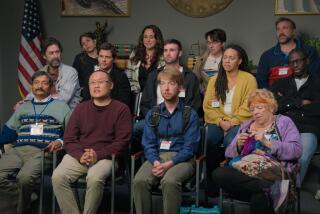Judges Aren’t Sequestered; Why Juries? : Simpson case: If we can trust 12 people to decide life and liberty, we should be able to trust them not to watch TV.
One of the hardest decisions that Judge Lance Ito will make in the O.J. Simpson case is whether to sequester the jury during the entire trial. California law leaves the decision up to the trial judge. Ito could sequester the jury only during the time of their deliberations or from the beginning of the trial. Although limited sequestration poses some risks, it would be fairer to the jurors and to the parties in this highly publicized murder trial.
The strongest argument against complete sequestration is the enormous burden on the jurors. Total sequestration removes jurors for months from families and friends. Even without sequestration, jury service in a long trial generally imposes a great hardship. But taking people away from their homes for months is a huge additional imposition and only should be ordered if it is truly essential to ensuring a fair trial.
In many ways, however, sequestration decreases the fairness of the court proceedings. Total sequestration dramatically decreases the number of jurors who can serve. There are many, such as those with children or the responsibility for caring for parents, who could participate if sequestered only for a short time, during deliberations, but could not if it was for the entire trial. The more the jury pool is constricted, the less likely it is that the jury will reflect a cross-section of the community.
Moreover, sequestration could adversely affect the jury’s deliberations. Eager to return home after months away, a sequestered jury is more likely to hurry its decision-making. If serious differences of opinion develop, the jury is less likely to persist in trying to reach a verdict and avoid a mistrial. Reports from past cases with fully sequestered juries reveal that the constant contact with only one another increases the likelihood that friction will develop among the jurors, which might impede effective deliberations.
Weighed against these harms, the greatest risk to not fully sequestering the jury is that jurors might be contaminated by news media reports, true or false, of evidence not admitted at the trial.
This is not a trivial concern in light of the unprecedented degree of media attention and leaked information in the Simpson case. Yet it is important to remember that even though it is the defendant who is most at risk of harm from leaks of inadmissible evidence, Simpson’s attorneys strongly oppose full sequestration.
There is every reason to believe that the jurors will carefully comply with the judge’s clear order that they not read, listen to or watch any reports about the case. Also, in light of the publicity thus far, the jury will need to be instructed to disregard everything they heard before the trial. The possibility of exposure to additional media stories does not justify the great burden imposed by total sequestration.
Full sequestration shows disrespect for those who are making a large sacrifice by serving as jurors. No one ever suggests that judges be sequestered, even in cases that they decide without a jury. Total sequestration assumes that jurors will not comply with the judge’s order, and, more important, assumes that the jurors cannot exclude external influences and decide solely based on the evidence in the courtroom. The very existence of the jury system is based on faith in the 12 people who will decide O.J. Simpson’s fate. They should be trusted to act and decide responsibly without the huge imposition of total sequestration.
More to Read
Sign up for Essential California
The most important California stories and recommendations in your inbox every morning.
You may occasionally receive promotional content from the Los Angeles Times.










